Technology: how the US, EU and China compete to set industry standards
Simply sign up to the Technology sector myFT Digest -- delivered directly to your inbox.
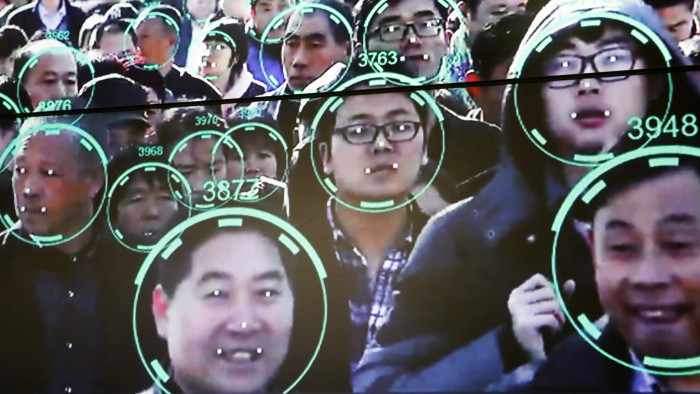
The first wave of Donald Trump’s trade war on China, punitive tariffs on $250bn of its exports, rivals the brutal protectionism of the Depression. But at least supply chains for basic goods and commodities can be re-established relatively quickly once the barriers are removed.
Phase two of the president’s campaign — citing national security imperatives to try to drive Chinese companies like Huawei out of tech supply chains — could leave a much longer-lasting mark.
Mr Trump’s move is a massive escalation of the struggle that has endured for years between rival companies and governments in the US and China to control the standards and technologies of the digital economy. The battlefront of that conflict now stretches from establishing market dominance to setting industry standards to influencing regulation.
But the US and China are not the only players in the game. Despite its underpowered tech sector, the third great trading power, the EU, has big ambitions as a rulemaker. European officials are quietly confident that, as with the “Brussels effect” whereby EU rules on cars, chemicals and food have been adopted around the world, so its regulatory process will play a large role in shaping the global digital economy.
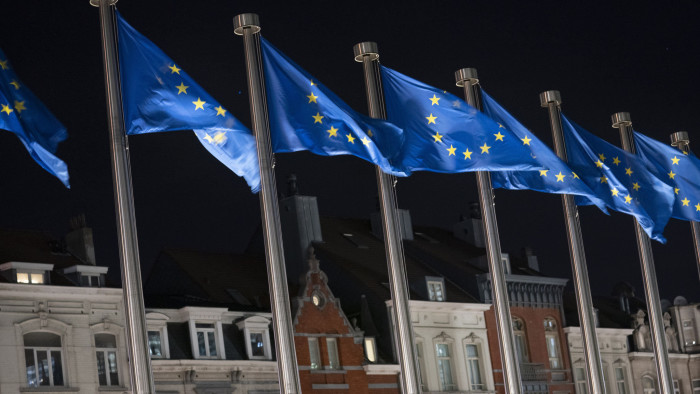
In the same way that EU emissions standards encouraging the production of electric cars have helped Tesla more than they have VW, the EU could end up providing the standards for an international data realm without making many products itself.
Competition over technologies and standards has become intense, and China in particular seems intent on creating a “Beijing effect” to replace the old Brussels version. A report last year on the internet of things for the US-China Security Review Commission, a hawkish body mandated by the US Congress, said bluntly: “China sees technology development as a decisive strategic resource and believes other countries’ control of key technologies is a significant strategic liability.” Beijing’s effort to influence and set international standards, it concluded, was “a critical part of China’s ambitious state-directed plan to achieve dominance”.
In modern trade, first-mover advantage in setting standards and rules can give a powerful edge to companies and businesses. With its company executives working in close alliance with government, China has adopted an aggressive multipronged strategy to push its standards globally.
An EU official says that China learnt from the experience of 3G, when it created its own standard which was used by no one else, losing advantage in innovation to the US and the EU. “This time round they have realised they cannot cut themselves off from the world,” the official says.
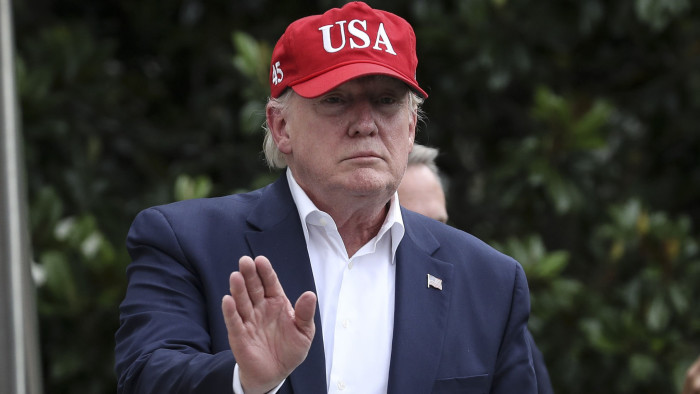
Through sheer size of population — together with lavish subsidies, supportive regulations and the exclusion of foreign competitors — the Chinese government has deliberately created a domestic mass market in areas such as autonomous vehicles, bike-sharing, payment systems and facial recognition. An aggressive export drive helps to establish its technologies abroad.
Ren Zhengfei, the founder of Huawei, told the FT this month that it was seeking dominance in the internet of things sector, using China’s large manufacturing sector to develop chips and software for companies to connect factory floors to the internet. “If everyone were to vote for an IoT standard, they would vote for our standard,” he said. “Qualcomm [Huawei’s US rival] hasn’t done much work in the IoT sphere and we’ve done a huge amount of research.”
Market dominance often works in alliance with a bureaucratic offensive. China’s government and companies have made aggressive moves to extend their influence in bodies such as the International Telecommunication Union, a Geneva-based organisation made up of industry and official representatives that sets standards in telecoms, and in the International Organisation for Standardisation, which does similar across a wide variety of technologies. The ITU now has a Chinese head and representatives from the country sit on several key committees. Chinese companies also participate in industry bodies such as the US-based Institute of Electrical and Electronics Engineers, which creates specifications for technologies such as wireless and integrated voice/data systems.
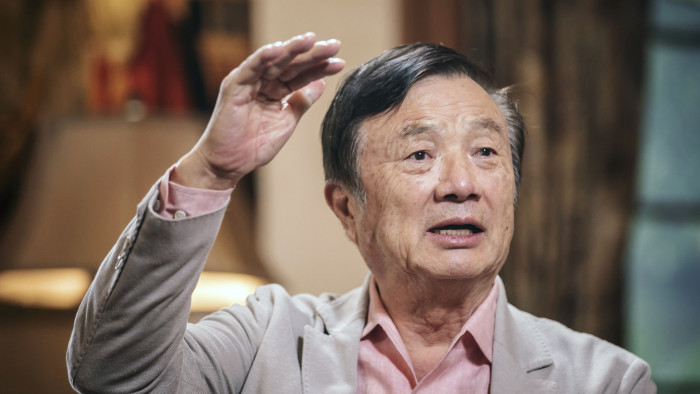
Beijing often uses such bodies as a way to promote standards it has established at home with little foreign input. In artificial intelligence, for example, it has developed standards in the China Electronics Standardisation Institute, part of the Ministry of Industry and Information Technology. It has since attempted to promote its model, which was developed in a separate white paper, in the ISO committee on AI.
Xiaomeng Lu of Access Partnership, a tech-focused public policy consultancy in DC, says China employs a “carrot and stick” strategy to deal with foreign players in standardisation — “mostly carrots in global environments and mostly sticks in domestic standardisation processes”. In international standards organisations, Ms Lu says, Chinese officials offered business deals under the table to foreign companies in exchange for their votes on Chinese technical proposals. But when setting its own standards, Ms Lu says, China uses the stick on foreign companies, often excluding them from discussions.
Beijing’s offensive has long raised hackles, especially in the US, where it is seen as another form of unfair competition — especially as US-based regulatory systems are open to Chinese companies, something that is not reciprocated.
In facial recognition, for example, the US National Institute of Standards and Technology, part of the commerce department, conducts performance tests in which Chinese and Russian companies can take part. In the most recent exercise last December, Microsoft’s technology came first for accuracy, an achievement it uses in its sales pitch to public and private sectors — as does the French company Idemia, which won a US state department contract after doing well in a previous examination.
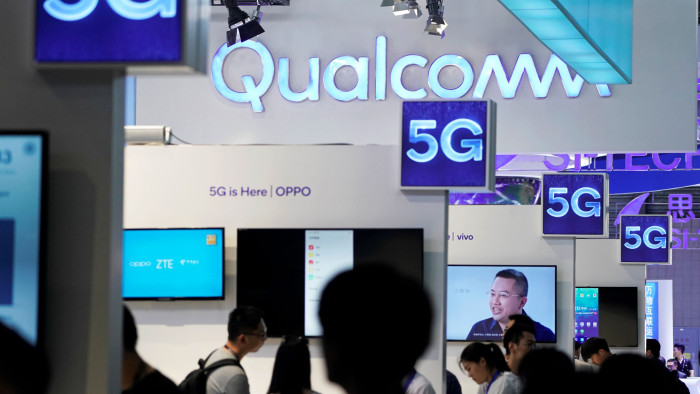
But Chinese companies like Yitu — and operations such as VisionLabs from Russia, another country with extensive domestic surveillance — have also scored highly on these recognition tests. Although law enforcement and other official agencies in the US shy away from buying Russian or Chinese technology, those companies find the results a useful mark of quality in selling their products elsewhere. A Democratic US senator, Brian Schatz of Hawaii, has reportedly drafted a bill proposing that Chinese and Russian companies be banned from Nist recognition tests in future.
Alarm in the US at Chinese dominance of tech infrastructure and standards predates the Trump presidency. The IoT report for the US-China Security Review Commission called on the US to be more active in standards-setting bodies. “[Beijing’s] efforts may lock in Chinese preferences for standards in IoT and supporting infrastructure sooner rather than later, as nascent IoT and 5G standards exist in a fragmented and complex standards-setting environment,” it said.
How much difference China’s energetic standards diplomacy will make on its own is unclear. “The ITU has aggressively pushed to make itself the agency for the whole UN regulatory system,” says one Geneva-based industry lobbyist. “But technical standards adopted by standards bodies are always voluntary.” China proposes a large volume of standards in the ITU’s technical groupings but other governments, including the US and UK, increasingly enter reservations declaring they will not adhere to a particular specification, the lobbyist says.
Similarly, a report on global standardisation bodies including the ISO by the Swedish Institute of International Affairs, a think-tank, finds that energetic input does not guarantee success. “Most Chinese proposals for new work items are rejected outright at a very early stage,” says Bjorn Fagersten, the report’s author. “Many proposals are of a very low quality.”
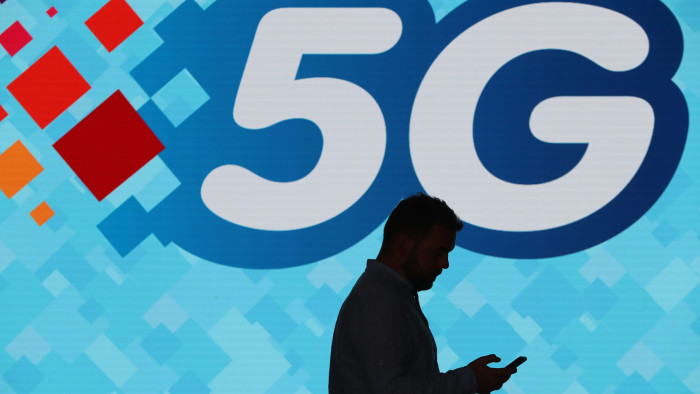
In the end, establishing facts on the ground through market share is likely to be a more effective means of dominating standards. It is hard to drive out a company whose technologies are deeply embedded in a particular sector. Mr Trump’s attempts to push Huawei out of 5G, for example, is coming up against the company’s near-indispensability in creating mobile networks. The basic technology for 5G is held as patents by a number of companies from different countries. Each depends on the others’ intellectual property and hence a rough balance has emerged. Huawei holds the largest number of “standards-essential patents” required to make the technology work, though it is closely followed by Europe’s Nokia and South Korea’s Samsung, with Qualcomm in sixth place.
After Mr Trump’s announcement, the IEEE banned Huawei employees from reviewing research papers on technical specifications, including the key 802.11 WiFi standard, but then reversed its decision after legal advice. 3GPP, another industry-led standards body, has warned that blacklisting Huawei could lead to separate standards for 5G, dividing the digital economy. Many EU countries, despite intense diplomatic pressure from the US administration and intelligence agencies, are permitting Huawei equipment into at least part of their new 5G networks.
Indeed, the EU has a subtler strategy for constraining China. The European Commission, the bloc’s executive arm, does have concerns about the security implications of companies like Huawei. But its approach involves regulating the way that technology is used more than going after the companies that make it. In the long run, EU officials say, its more measured approach, rather than the US’s confrontational tactics, will pay higher dividends in restraining any Chinese attempt to establish global dominance in tech.
Despite the underdevelopment of its own tech sector, the EU argues that it is becoming a global rulemaker for digital technology, particularly involving the use of personal data, through its General Data Protection Regulation. Whatever China’s success in developing technologies, EU policymakers say, its attitudes to privacy and data protection hold its companies back. If the world does split into different realms of tech and data, GDPR could set the rules for much of the domain outside China. The EU official says: “GDPR means that the global data economy can now be a reality.”
In Brazil, for example, although the country is importing facial recognition technology from China, its use may be restrained by a privacy law passed last year that owes much to GDPR.
Although Chinese businesses have historically had access to vast amounts of domestic personal data to develop products, they have had problems harvesting equivalent information internationally because China’s data regulation and privacy regime is regarded as suspect. There is extensive surveillance by the state, and uncertainty about how much data collected by the government will find its way to favoured companies. Accordingly, rules like GDPR constrain businesses sending data collected abroad to China.
Companies that dominate the Chinese market sometimes struggle to go global. WeChat, the do-it-all app that combines services for messaging, electronic payment, news and e-commerce — as well as access to public services — has more than 80 per cent penetration among smartphone owners in China. Even more mobile internet users in the country have employed some kind of e-pay system. Beijing has encouraged this shift to e-payments by in effect blocking foreign credit card companies from operating on a large scale in China.
But WeChat has been much less successful penetrating other advanced economies. Giles Derrington of the British industry association techUK says: “Using Chinese data to get insights on European consumer habits only gets you so far. There are hugely successful companies, such as WeChat, that have stopped at the water’s edge.”
In the EU, it is often regulators rather than competitors who put obstacles in China’s way. The Chinese company Mobike, for example, is competing hard to supply the rapidly growing European demand for bike-sharing, using technology developed in its domestic market. But given that the company transfers data back to China, which requires explicit consent from the user, there have already been concerns over potential GDPR violations. In December the German data regulator announced an investigation into Mobike because of its data transfer practices. The company says it fully complies with GDPR.
As well as GDPR, the EU is also establishing a lead in the ethics of artificial intelligence, another issue of public concern about which many governments are considering legislation. Mr Derrington says: “China is a world leader in AI research. But it will have a challenge exporting that globally.”
If a divergence in standards emerges between the big powers in tech, there will be a battle over extending favoured models into other countries, particularly large emerging markets in Asia. In any given country, the struggle for dominance may involve a three-way contest between rival Chinese and US technologies and a data protection system copied from the EU. Thanks to Mr Trump’s attempts to push China out of the US digital sector, an existing struggle over tech standards and privacy has now assumed systemic global importance.
Additional reporting by Yuan Yang
The ‘Brussels effect’
Longtime observers of the global governance game will see in the current progress of the EU’s GDPR a familiar pattern unfolding from previous episodes of European rule-setting, notably the Reach chemicals regime.
First, the European Commission concocts a complex set of rules. Companies complain they are intrusive, bureaucratic and anti-competitive. Then businesses work out how to meet the regulations. Indeed, big operations, with more management capacity to adjust, often find compliance a competitive advantage.
Finally, multinational companies selling into Europe adopt them as their de facto global standard, as sometimes do foreign regulators. And so another chapter is written in the “Brussels effect” of European rules going global.
Many countries around the world — and the state of California, which often takes a lead on regulation in the US — have adopted data regulation laws that look something like GDPR. The EU is trying to build critical mass around its model, contrasting it with the Chinese approach.
Vera Jourova, the European Justice commissioner, said in April in Washington that two camps of data protection were emerging — one with tough privacy rules and a lax one that allowed companies and governments to mine personal data. Ms Jourova called on the US to join the EU in the first camp “rather than wait on the sidelines and become a rule-taker”.
Letters in response to this article:
Consumers chose the nifty alternatives to credit cards / From Michael Wadley, Shanghai, China
Standards are developed in a consensus-based way / From Josh Kallmer, Washington, DC, US
Increase product quality to resolve trade war / From Andrew Hunt, Edinburgh, Scotland, UK
Comments